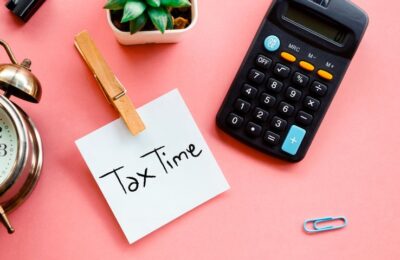In recent months, the UK tax burden has been under the spotlight. Many articles have pointed out that the current tax burden is at its highest for 70 years. Now the Institute for Fiscal Studies (IFS) has published a report on the UK tax record between 2010 and 2024. You can read the full report here, but we thought our readers would appreciate a summary of its key findings.
Tax revenue is rising
Between 2010 and 2019, tax revenue as a proportion of national income remained largely static at 33%. However, it is now 36%. This is indeed the highest tax burden since 1948. That said, a good number of OECD countries have a higher tax take than we do.
More direct taxation
Compared to 2010, a greater proportion of tax revenue is coming from income tax, VAT, corporation tax and taxes on capital such as CGT. Less tax now comes from sources such as fuel duty, tobacco duty and business rates.
More people will be paying income tax
The percentage of people paying income tax dropped from 61% in 2010-11 to 58% in 2019-20. However, the personal tax-free allowance has been frozen since 2022. It will remain so until 2027-28. A freeze is a real terms reduction, so it’s predicted that 66% of adults will pay income tax by 2028-29.
Tax record for pensioners
The UK’s recent tax record doesn’t contain good news for pensioners. In 2010-11, 48% of over-65s paid income tax. In 2023-24 this figure was 65%. This means more pensioners now pay income tax than do working age people (63%).
The number of higher rate taxpayers is soaring
Back in 2010-11, only 6% of the adult population (3.3 million) paid the higher or additional rates of income tax. This now stands at 13% (7.4 million) and is predicted to hit 15% by 2028-29. There are multiple factors behind this, including increased wages and inflation pushing people into higher tax bands.
The wealthy are paying more income tax
Despite many arguments to the contrary, the UK’s recent tax record shows that the wealthy are paying more. In 2010-11, the top 10% of taxpayers paid 54% of all income tax. This has risen to 60%.
The tax gap has shrunk
One success in the UK’s tax record in recent years has been to close the tax gap. In other words, the gap between what HMRC collects and what it thinks it should collect has shrunk. This may be due to HMRC developing better intelligence gathering tools, as well as crackdowns on everything from unpaid dividend tax to Airbnb income and campaigns targeting landlords. However, the IFS does point out that HMRC’s customer service levels have ‘reached an all-time low’.
Taxes have become more complicated
The IFS notes that the UK tax system has become more complex. The last 14 years have seen new taxes, along with new rates, allowances and reliefs for existing ones.
The UK’s tax record and what it means for you
The IFS’s report on the UK’s tax record has identified a number of trends. Firstly, taxes are high and more of us are now paying them. Secondly, growing numbers of us are getting pulled into higher tax brackets. Thirdly, the tax system is increasingly complex. For that reason, it’s more important that ever to work closely with your accountant. With the right tax planning advice, you could legitimately reduce your tax bill and save more for your future. Get in touch today to learn more.
About Karen Jones
Having worked for one of the world’s largest accountancy firms, Karen Jones uses her tax knowledge and skills to help clients obtain substantial reductions to their tax liabilities.
With an expanding portfolio of tax clients, Karen enjoys the variety her work brings her and particularly likes working with new businesses and people. With a growing number of tax clients, she frequently faces a variety of challenges and relishes the experience she gains as she solves them.
Karen likes the THP ethos: “I like the way the team has a professional, but friendly and down-to-earth approach – it creates a productive atmosphere that benefits everyone.”
Karen’s specialist skills:
- Personal Taxation
- Tax Efficient Planning
- Trust Administration












